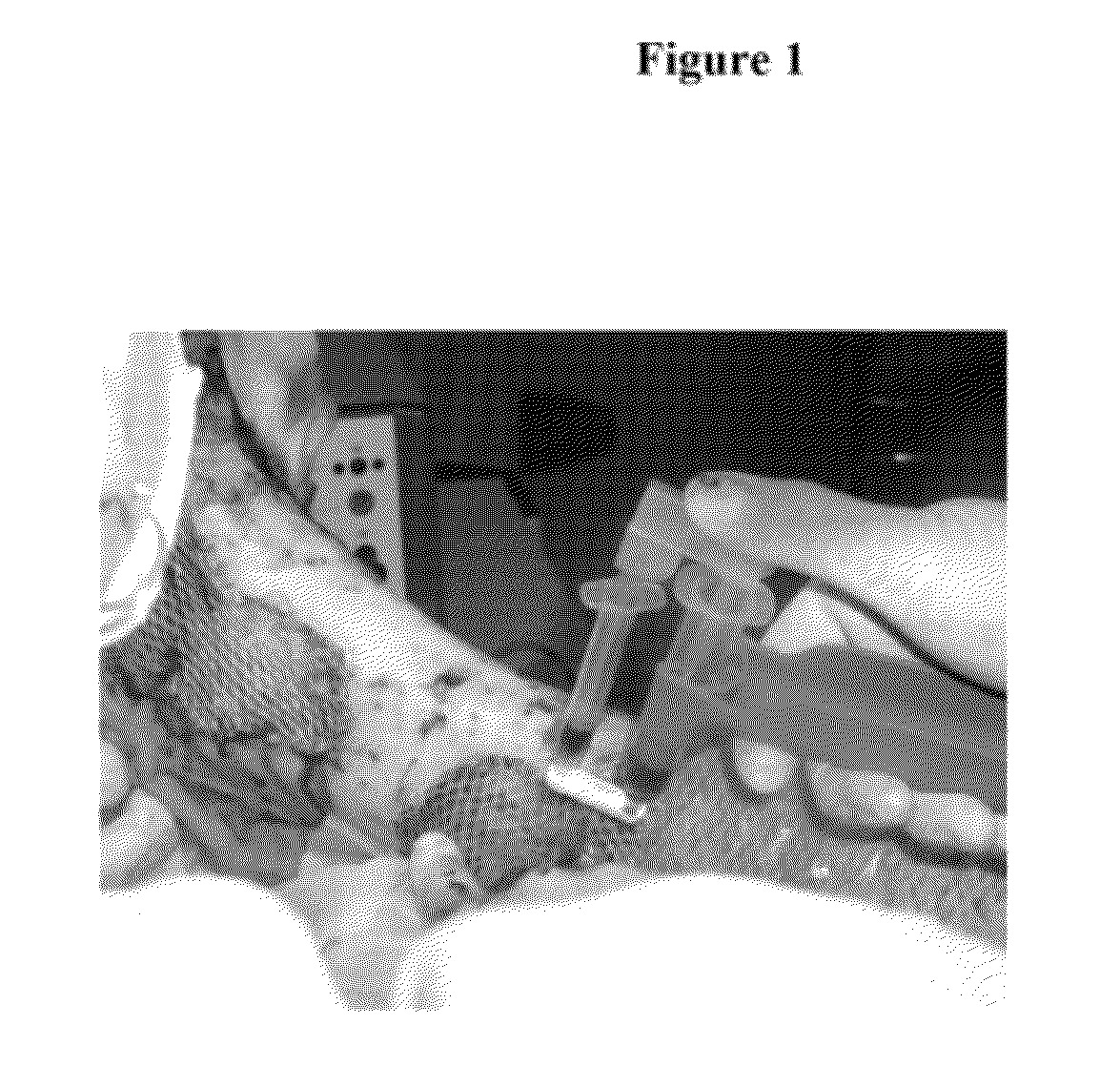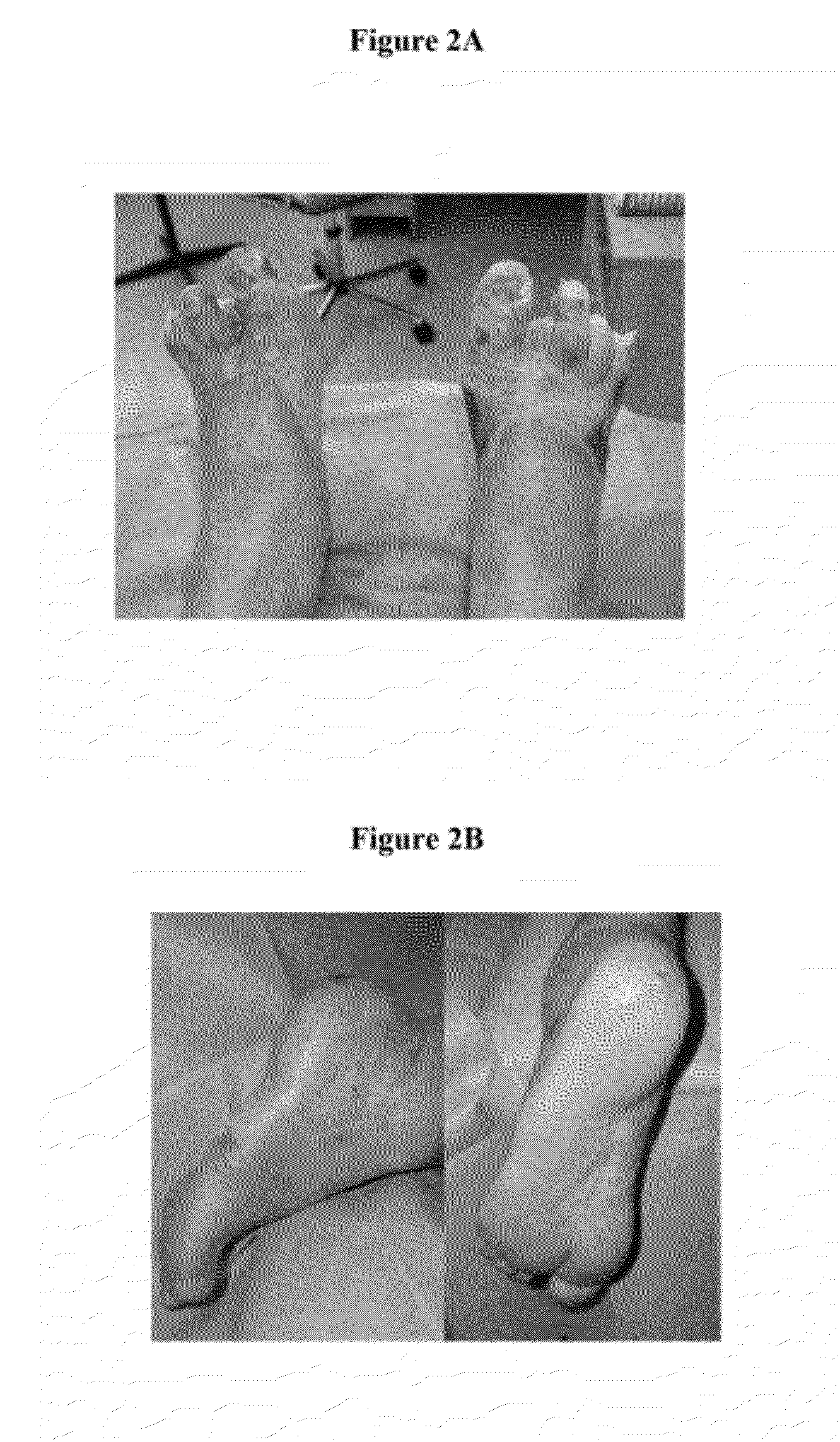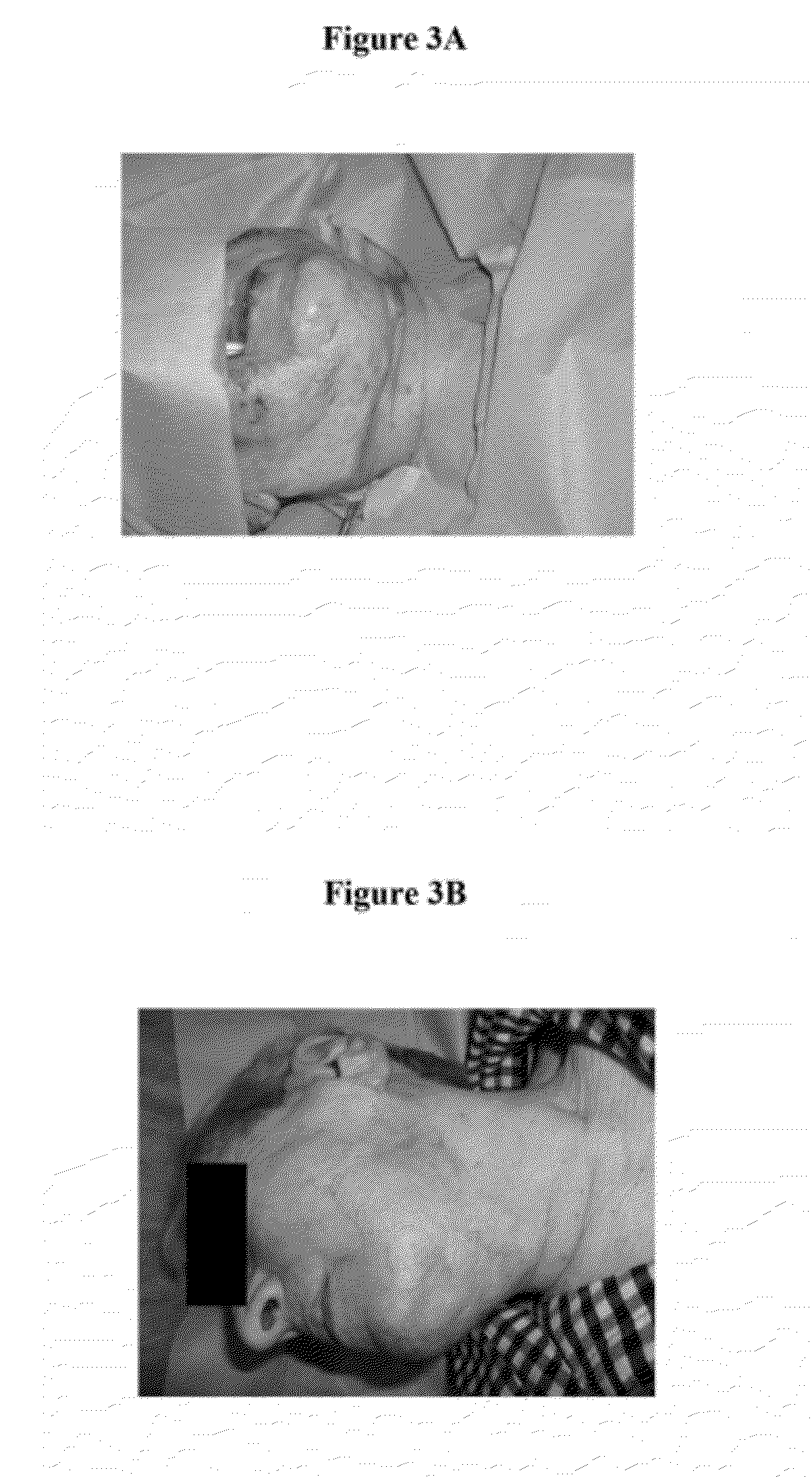Treating burn injuries with reduced hypertrophic scarring
a hypertrophic scarring and burn injury technology, applied in the field of burn injury treatment methods and materials, can solve the problems of high morbidity and mortality rate, deep burns are very painful, and the therapeutic results are sometimes unacceptable, so as to improve the healing characteristics, no scarring, and rapid healing
- Summary
- Abstract
- Description
- Claims
- Application Information
AI Technical Summary
Benefits of technology
Problems solved by technology
Method used
Image
Examples
example 1
Autologous Platelets Concentrate and Human Autologous Thrombin for the Treatment of Deep Burns Trauma
[0027]17 patients (9 men, 8 women) were included in this study. The mean age was 56 years (range 33-83). Each patient signed informed consent with surgery treatment (i.e., surgical excision of devitalised tissue, dermoepidermal transplantation, and local transplantation of autologous platelet concentrate (APC) and autologous thrombin). The mean extent of deep burned skin with local transplantation of APC was 3% TBSA—Total Body Surface Area (range from 1.5% to 4% TBSA). The mechanism of burn injury was hot water, a flame, glowing liquid metal, or an explosion of gas. Seven patients were smokers, and 10 patients were non-smokers. One patient had diabetes mellitus type I and was on insulin therapy.
[0028]The inclusive criteria required each patient to be an adult patient (over 18 years of age) with deep burn injury indicated for surgery treatment (e.g., surgical excisions of devitalised ...
PUM
| Property | Measurement | Unit |
|---|---|---|
| area | aaaaa | aaaaa |
| elasticity | aaaaa | aaaaa |
| time | aaaaa | aaaaa |
Abstract
Description
Claims
Application Information
 Login to View More
Login to View More - R&D
- Intellectual Property
- Life Sciences
- Materials
- Tech Scout
- Unparalleled Data Quality
- Higher Quality Content
- 60% Fewer Hallucinations
Browse by: Latest US Patents, China's latest patents, Technical Efficacy Thesaurus, Application Domain, Technology Topic, Popular Technical Reports.
© 2025 PatSnap. All rights reserved.Legal|Privacy policy|Modern Slavery Act Transparency Statement|Sitemap|About US| Contact US: help@patsnap.com



